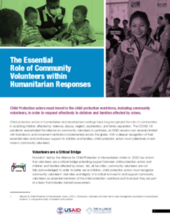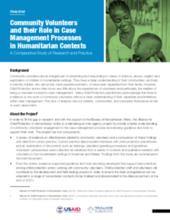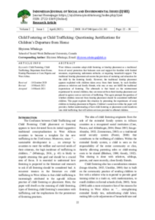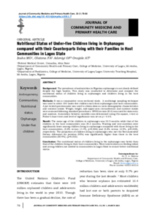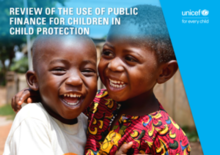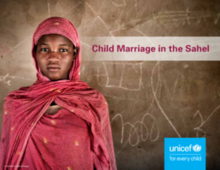childrens_living_arrangement
Displaying 31 - 40 of 136
This is a 3-page document targeting donors, policy makers, and UN agencies regarding the roles of volunteers and how decision makers can support their roles
The Alliance for Child Protection in Humanitarian Action undertook an inter-agency project to provide a better understanding of community volunteers’ engagement in the case management process and develop guidance and tools to support their work.
This paper explores whether children removed from kinship placement should be considered trafficked children by presenting the experiences of some children in kinship placement in Nigeria.
This study was conducted to determine and compare the nutritional status of children living in orphanages and children living in the host communities in Nigeria.
According to this article from CNN, gunmen have abducted eight children and two adults from an orphanage in Nigeria's federal capital, Abuja.
This paper explores Lagos private schools as crucial sites of care for children with parents in the diaspora.
The purpose of this review is to explore how UNICEF country offices have used Public Finance for Children (PF4C) analyses and interventions within child protection, with a view to learning lessons from their experiences.
This article provides an ethnographic and cross-sectional study of the management of orphanages in one Nigerian city.
This brochure from UNICEF provides an overview of child marriage in the Sahel, a region spanning the northern portion of sub-Saharan Africa.
"The Proprietor of an Orphanage home in Ile-Ife, Mrs Elizabeth Oroyemi slumped as Osun State Government officials sealed the social facility over suspected illegal activities, including being used as baby factory," says this article from Vanguard.

